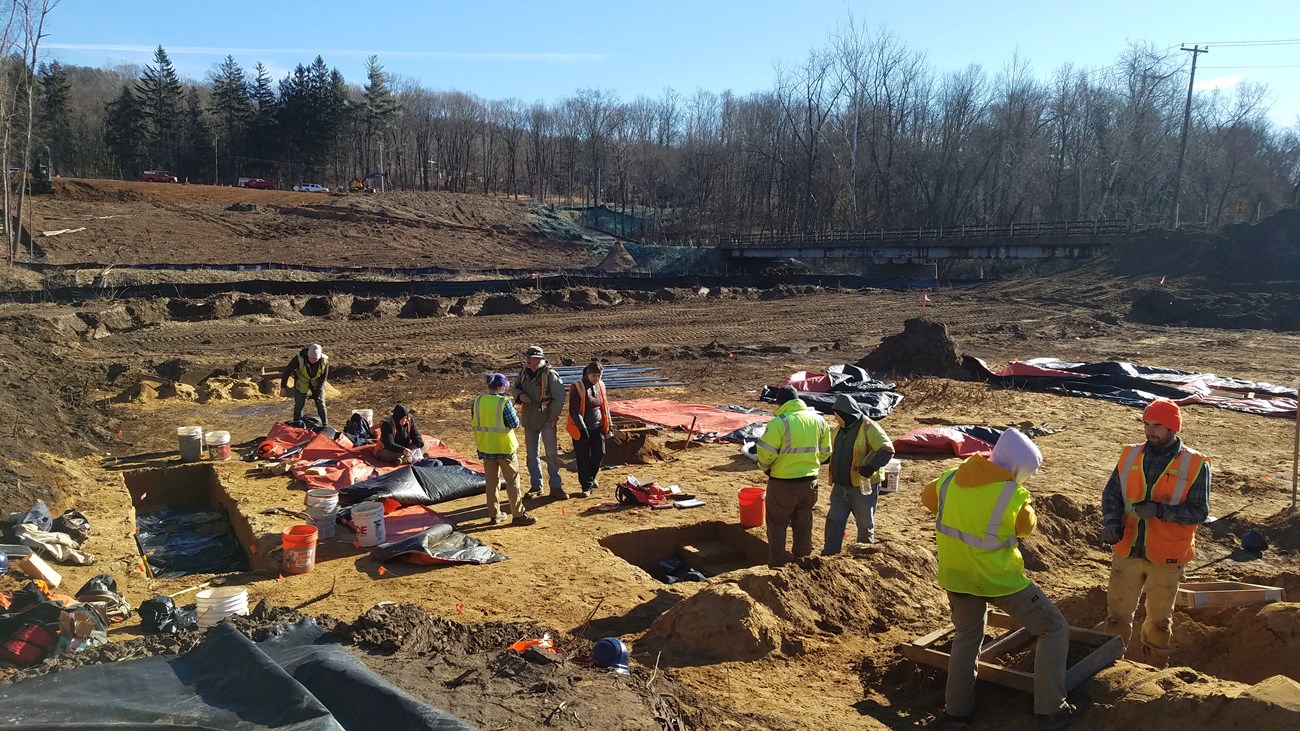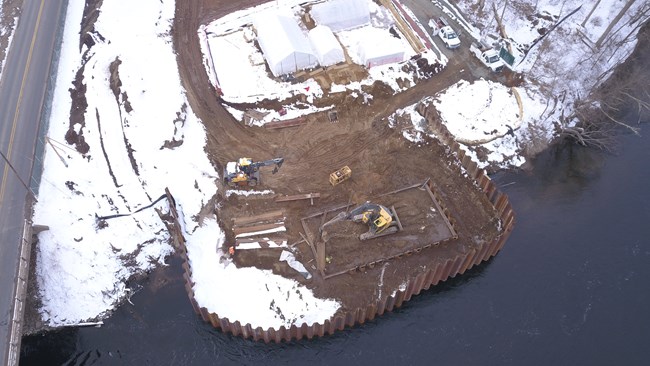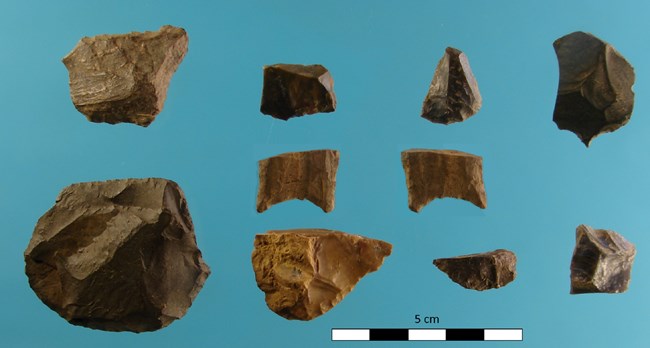Last updated: January 21, 2022
Article
Funding Cultural Landscape Education About a 12,500-year-old Paleo-Indian Site on the Farmington River
Content submitted by: Sally Rieger, Chairman, Lower Farmington River and Salmon Brook Wild and Scenic Committee
Since the Cultural Landscape is one of the Outstandingly Remarkable Values for which the Lower Farmington River and Salmon Brook were designated, the Lower Farmington River and Salmon Brook Wild and Scenic Committee (LFSWS) was delighted to tap its Small Grants Program to support the Avon Historical Society, the Avon Free Public Library and the Avon Senior Center in offering a second year of educational webinars related to the 2019 excavation of a 12,500-year-old Paleo-Indian site on the west bank of the Farmington River in Avon, Connecticut.

Archaeological and Historical Services, Inc., Storrs, CT
The site is the oldest known human occupied site in both Connecticut, and in southern New England. It is an exceptionally rich source of information because of the many artifacts found there and because the deeply buried Pleistocene levee on which it was found has stratified layers of soil, leaving artifacts from particular time periods still together in their original soil layers. About 20,000 artifacts and remains of structures were found during the excavation.
According to Dr. David Leslie, Senior Archaeologist and GIS Specialist at Archaeological and Historic Services in Storrs, CT, the artifacts will be preserved long-term under a Memorandum of Agreement among the Town of Avon, State of Connecticut (Department of Transportation), Federal Highways Administration, Connecticut State Historic Preservation Office, Office of State Archaeology and Federally Recognized Native American Tribes in Connecticut.

Archaeological and Historical Services, Inc., Storrs, CT
In its grant application, the Avon Historical Society explained that the goal of the Unearthing History webinar series in 2022 is to continue to bring to light life during the Paleo-Indian period when the first people arrived in New England between 13,000 and 10,000 years ago. This was after the retreat of the last Ice Age. According to the Historical Society’s grant application,
“Following the caribou and other now extinct mammals, these people found the richness of this continent, enabling them to work and live successfully along waterways, such as the Farmington River, for thousands of years.”

Archaeological and Historical Services, Inc., Storrs, CT
The 2022 webinars will cover Ice Age animals of this region, the trade routes of these indigenous people including those who lived at this site on the Farmington River, their food, their use of the land and river, their ancient DNA and how genetics will increase the understanding of who these inhabitants were and who their descendants are today. Part of LFSWS’ grant funding will go to providing honoraria for the various experts who will present the five webinars and part will cover increasing the size of the audience that can view the webinars live.
LFSWS thanks the Archaeological and Historical Service, Inc. (AHS) for permission to use its photographs, and thanks both AHS and the Avon Historical Society for sharing much of the background information in this piece.
Find out more about the Avon Historical Society.
The 2021 programs in the Unearthing History Series are available on the Avon Free Public Library YouTube channel.
